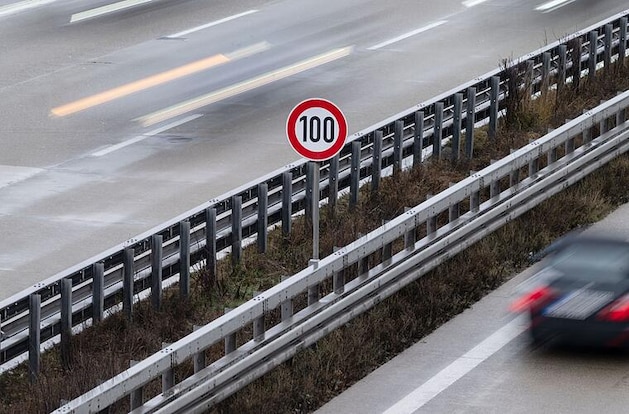With a speed limit of 100 kilometers per hour on motorways, according to current calculations by the German Environmental Aid (DUH), a significant contribution to the CO2 reduction target in the transport sector can be achieved, contrary to what was previously assumed.
“Our new calculation shows in black and white: With a speed of 100 km/h on the motorway and 80 km/h outside of town, 11.1 million tons of CO2 can be saved per year – without costs and can be implemented immediately,” said DUH Federal Managing Director Jürgen Resch to the editorial network Germany (RND/Montag ).
He emphasized that this could close almost a third of the climate protection gap that will still exist in transport by 2030, totaling 271 million tons. “A self-proclaimed climate government cannot ignore this irrefutable fact. So enough of the excuses,” said Resch.
The calculations available to the RND are based on a study published a few days ago by the Federal Environment Agency (UBA), according to which a speed limit of 120 km/h on motorways would result in annual CO2 savings of 6.7 million tons. The number is significantly higher than previously assumed by the UBA, since the new study also takes route choice and demand effects into account for the first time.
In order to calculate the effect at 100 km/h, environmental aid used a UBA study from 2020, in which the savings effect of reducing from 120 to 100 km/h had already been examined.
“The speed limit can be implemented within a few days if everyone participates,” emphasized Resch. Addressing the SPD and the Greens, he said with a view to Transport Minister Volker Wissing (FDP): “If you get the eternal blocker Wissing to clear the way for the 100/80/30 speed limit, we’ll take care of the signs. “
With environmental activists from all over Germany, help can be given to cover up the traffic signs that “so far have tempted you to run wild” and then no longer needed and also to change the information boards at the border crossings, the environmental aid offered.















